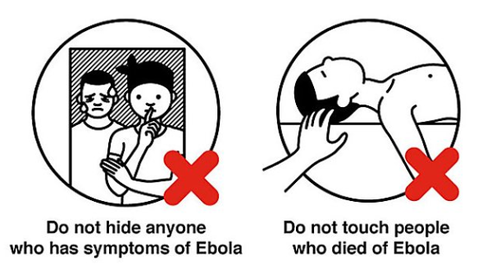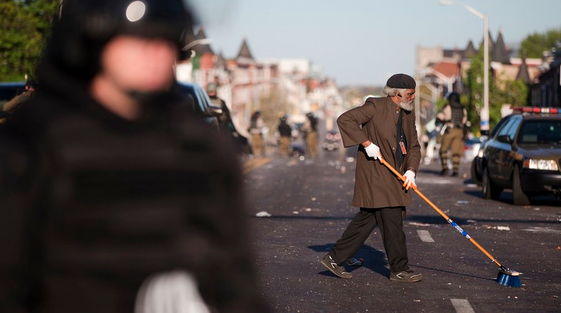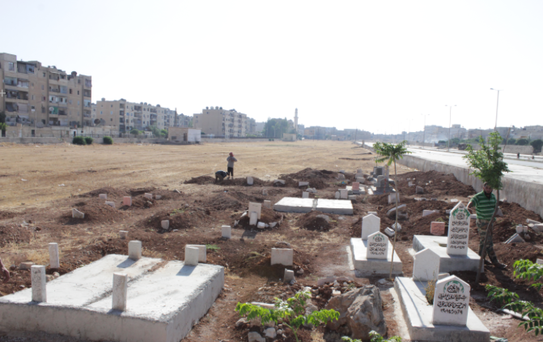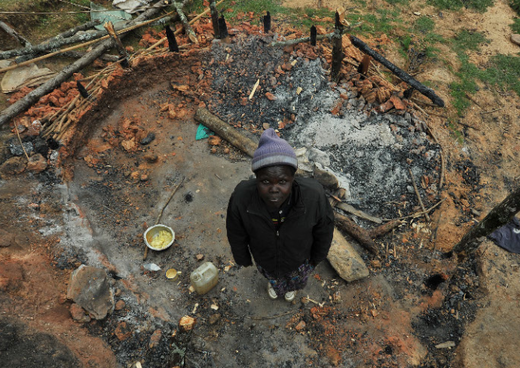|
If I’ve heard it once, I’ve heard it 1,000 times: if you want to become a good writer, you need to read good writing. That notion is also worth expanding to: if you want to become a good journalist, you need to engage with good digital journalism. The 2015 Online Journalism Awards provide an opportunity to do just that. I loved nerding out and getting sucked into these excellent examples of new age storytelling. Before the winners are selected this weekend, I decided to highlight which pieces are some of my favorites and why they should win their respective categories. Knight Award for Public Service: BBC WhatsApp Ebola News Service The BBC WhatsApp Ebola News Service blew me away. To expand its programming on Ebola, the BBC used the channel of WhatsApp to post content three times a day with the intention of reducing the virus' spread and keeping people informed on help available to them. To me, this project was trailblazing in the way that it explored a new territory of journalism working directly in humanitarian crises. It is especially impressive to me how conscious the BBC was of the communities it was catering to. After having studied in Ghana and witnessing how popular and widespread WhatsApp is in the region, I feel it was a brilliant decision to work through mobile phones and use the app. I also think it demonstrates smart strategy to have avoided video content so that people with limited access to cellular data would still have access to the lifesaving information being pushed out by the BBC. The last component that makes this project so special and important for the future of journalism is the way that interaction with its audience was able to shape and improve its coverage. The BBC was able to adjust its approach according to advice from people experiencing the crisis firsthand, which is groundbreaking insight into covering similar crises in the future and empowering the role of the media for social good. Honorable mention: The personal videos, graphics and photos combined with the extensive data, statistics and policy analysis of The Post and the Courier's "Til Death Do Us Part" exposed a disturbing reality in Virginia worth noting. Breaking News, Medium: Baltimore Riots The idea of breaking new ground seemed to be a common theme among these truly innovative Online Journalism Award finalists. For example, I think that Mashable's coverage of the Baltimore riots and similar styles of reporting are shifting the paradigm of how the media reports events as they unfold in real time. Mashable's work on the riots took the idea of the 24-hour news cycle to a whole new level and wins the category of breaking news in my book. Its use of social media platforms such as Vine, Twitter and Periscope to keep the public in the know with what was really going down in Baltimore following Freddie Gray's funeral was fascinating and well-executed. The reporters continued to find new and interesting angles each day to thoroughly cover different dynamics of what was happening from the perspective of a wide variety of key stakeholders. I appreciated the quality of journalism that was able to come out of these live counts on social media with the help of teams of editors working non-stop on each coast of the country processing what was happening each day. This type of coverage is characteristic of and foundational to the 2015 identity and definition of digital journalism. Honorable mention: The Baltimore Sun also generated extraordinary content during the riots, and the New York Times use of well-designed interactive graphics in the story "Germanwings" including elaborate maps and timelines should be acknowledged. Planned News/Events, Large: The Senate Report on the CIA's Interrogation Program I remember the day this story was published. A friend posted it on her Facebook page, and I can vividly recall the strange juxtaposition of my feelings. I remember feeling bummed out but also exhilarated. The findings in the report--especially point 14--upset me, but the way The Washington Post presented the information made me think, "This is SO COOL." To me, this story embodies one of journalism's oldest roles: facilitating the function of democracy and holding government institutions accountable. It simplified something so seemingly dense and complicated, and it made technical jargon easily accessible to the average American. If I could personally hand The Washington Post a gold medal for this one, I would. Explanatory Reporting, Medium: What Does Gun Violence Really Cost? By looking at the economic toll of gun violence, Mother Jones approached a hot-button issue from a pragmatic angle that has not been explicitly explored before. The research and data used put gun violence in the same context of other things we spend money on as a country, which heightens the urgency of the problem in the political realm. An issue like gun violence is seen almost indisputably as a devastating human problem, but with these hard statistics, it is now able to be seen in public discourse as an economic problem as well. It is more difficult for an issue to seem like an ambiguous enigma with a number like $229 million attached to it. Mother Jones' piece also exposes the political reasons for an absence of other recent research on gun violence in the U.S., which further raises concern about the way the issue is being addressed nationwide. In the process of telling a story around numbers, Mother Jones managed to never lose the human aspect, keeping personal stories central. Online Commentary, Small: Dispatches from Syria, Marcell Shehwaro on Life in Aleppo This piece enthralled me immediately upon realizing the unique perspective being shared authentically in a way usually unavailable to the public. The insight that Marcell Shehwaro was able to provide as someone with personal stake in the Syrian conflict is invaluable, especially in the way that she was able to express her experiences so vulnerably. Through this piece, the audience was able to connect with those affected by the conflict in Syria on the most human level, which also enabled the reader to realize the severity of the situation as one that robs people of their humanity every day. This paragraph left such an impression on me: “I don't know what my feelings are, exactly, but at this moment I fully understand the cry of all the victims who are calling for revenge. And I understand how everything loses value when you deal with death on a daily basis. I know how learning to adapt gives you greater reverence for death than for life. In our days, which have all become similar to each other, death has become the norm and life the exception.” How could you read that and feel okay about what’s going on in Syria and the international community's lack of meaningful action? Student Projects, Pro-AM: Assault on Justice This project handled a hot-button issue like police/community relations with care right from the start. I love the imagery used in the lead for this story. Some of its other noteworthy strengths are its easy access points to the most relevant information and the attractive, understandable graphics that powerfully illustrate the issues at hand. Honorable mention: The graphics for Loud Austin--The Live Music Capital with a Loud Music Problem were incredible and deserving of some props. The Al Neuharth Innovation in Investigative Journalism Award, Medium: Undue Force This year, due to circumstances that landed the city in the national spotlight, The Baltimore Sun had the opportunity to contribute majorly to the national conversation around police brutality, misconduct and relations with communities. They really stepped up to the plate, even long before they were put under the spotlight. This story is the inside look at how serious the issue of police brutality is in Baltimore, answering many questions that surfaced around the time that Freddie Gray began getting national attention. The kicker is, it was written more than six months prior to Gray's arrest and details research that was conducted over the six months before that. The Sun does a great job of looking at how the problem affects the city as a whole, zooming in on people ranging from grandmothers to teenagers and not limiting its scope to one specific incident. Interactive graphics show areas where incidents occurred. The story forebodes the effect of police misconduct on citizens' trust of police and brings up the need to fire offending officers. It is sad that The Sun was able to predict something so terrible happening to its city, but in many ways, it is remarkable. The Al Neuharth Innovation in Investigative Journalism Award, Large: Evicted and Abandoned: the World Bank's Broken Promises to the Poor The Center for Public Integrity’s International Consortium of Investigative Journalists and The Huffington Post did an excellent job of telling an essential piece of a story that is generally always excluded. In the narrative of international development, negative effects of major international bodies are not often discussed in a way that average people would understand or engage in. This story broke down a huge topic that most people don't know a ton about, the World Bank, by explaining basically what it sets out to do while also emphasizing its fatal flaws in carrying out development projects that often go unnoticed. They were able to communicate this complex story of international geopolitics effectively in a way that readers could connect to by using anecdotes, photos and videos to put faces to those affected by destructive development projects. The wider problem was simplified further by breaking it into case studies of specific countries in specific contexts each looking at a specific type of issue. These kinds of issues can seem far away and irrelevant to readers, but this story drew people into its importance. All of the finalists for the 2015 Online Journalism Awards make meaningful contributions to the field in the new ways they use different digital platforms and also in the substance of the content they address. Learning from the best will hopefully help me to grow as a digital journalist, which is exciting. But, the hope that these stories give me for the future of journalism and its potential to grow in its ability and capacity to improve the world we share is even more exciting news for us all.
1 Comment
|
AUTHORI am a senior studying journalism and international affairs at Marquette University. I am a Milwaukee-dweller and a storyteller passionate about exploring the intersection between community-building and communication. I'd love for you to learn alongside me! ARCHIVES
March 2017
|




